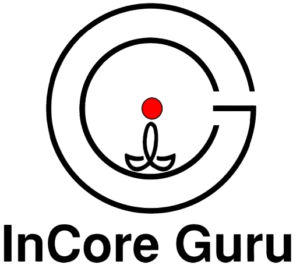- +91 8586 82 4525
- info@incoreguru.com
Tech Innovation / Ideation & Creativity Workshops
Ideation & Creativity Workshops are structured sessions designed to stimulate creativity, generate new ideas, and solve problems collaboratively. These workshops are popular in businesses, educational settings, and innovation teams to encourage participants to think outside the box, harness collective intelligence, and produce novel solutions. They are often used to kick off projects, address specific challenges, or brainstorm future strategies.

A successful ideation workshop follows a structured yet flexible format that facilitates creative thinking, engagement, and the free flow of ideas. The key components of a typical workshop include:
Workshops must have clear objectives, whether it’s generating ideas for a new product, solving a particular business challenge, or exploring new opportunities. Establishing a clear purpose helps guide the ideation process and focus the participants.
Involving participants with diverse backgrounds, expertise, and perspectives enhances creativity. Bringing people together from different departments, roles, or industries encourages cross-pollination of ideas and prevents groupthink.
The physical or virtual space should be conducive to creativity, with tools like whiteboards, sticky notes, markers, and creative props readily available. Virtual workshops may use collaborative tools like Miro, MURAL, or Google Jamboard to replicate the interactive experience.
A facilitator plays a crucial role in keeping the workshop on track, guiding the process, and ensuring everyone participates. They help manage the flow of activities and encourage quieter participants to contribute while ensuring that more dominant voices don’t take over.
Workshops typically follow a structured process that moves participants through different phases of thinking, starting from problem definition and moving toward ideation, evaluation, and sometimes prototyping. This process balances creativity with focus and productivity.
There are several techniques and exercises used in creativity workshops to inspire thinking and generate ideas. These activities are often chosen based on the goals of the session and the preferences of the participants.
Brainstorming is one of the most popular ideation techniques, encouraging participants to generate as many ideas as possible in a set time frame without filtering or judging them.
Key Rules:
Variants:
SCAMPER is a creativity technique that involves asking specific questions to stimulate thinking by modifying or reimagining an existing product, service, or process.
SCAMPER stands for:
Example: In a SCAMPER session for a retail product, participants may explore how combining features from two successful products could create a new market offering.


At Incore Guru, our aim is to help businesses in managing and create intellectual property (IP) and provide comprehensive IP solutions for every aspect of conducting business in the knowledge economy.
C165 Sarvodaya Enclave New Delhi 110017 INDIA
101 Tilak Path CMR Point #101 INDORE 452007 INDIA
